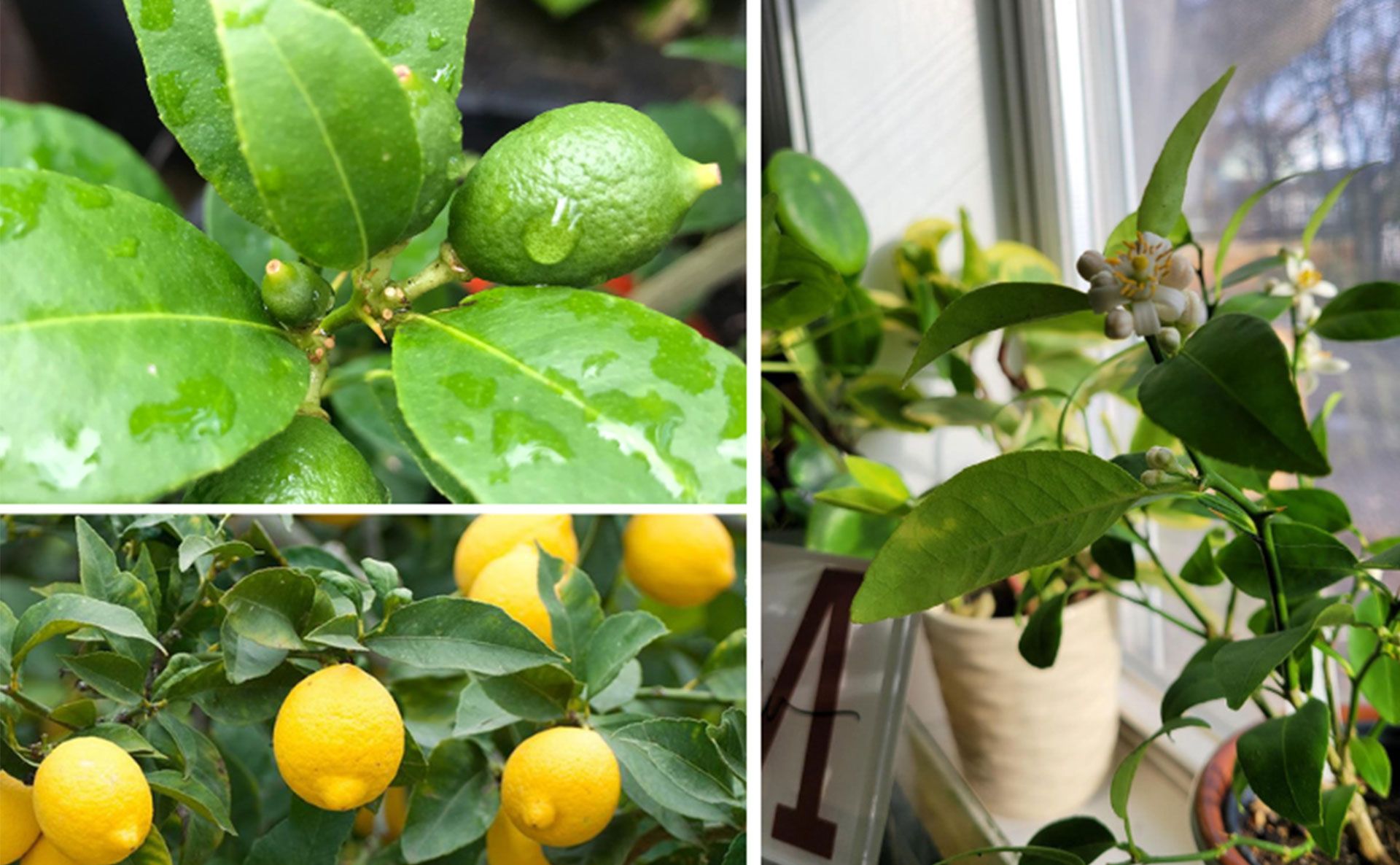How to Care for Citrus Trees in Containers & Successfully Grow Citrus Indoors

Citrus Trees for Your Home
With just a bit of care, even gardeners in colder climates (USDA zones 2-8) can enjoy the rewards of citrus trees right in their homes. Best of all, homegrown citrus brings both beauty and fragrance, along with a delicious harvest you can enjoy throughout the year!


Enjoying Homegrown Citrus
One of the great joys of growing citrus is having fresh, homegrown fruit at your fingertips. Whether you grow them indoors or in a greenhouse, citrus trees like Meyer Lemons, Key Limes, and Calamondins offer a wide range of uses. You can grow these trees in pots to enjoy year-round fruit for your favorite dishes, beverages, and more!
- Meyer Lemons: Sweet and slightly tangy, perfect for baking, sauces, or cocktails.
- Key Limes: A must-have for key lime pie and refreshing drinks.
- Calamondins: Small, tart fruits that are great for marmalades or as a zesty garnish.
These compact trees not only provide a bountiful harvest but also enhance your space with their fragrant blossoms and glossy leaves.
Growing Citrus Trees in Containers
Adding a citrus tree to your home or garden is straightforward with container gardening. The key benefits of growing citrus trees in containers include mobility and adaptability; you can move the tree indoors during cold months or adjust its location to capture the best sunlight.


Here are essential tips for container citrus gardening:
Choosing the Right Container: If you're starting with a smaller plant, begin with a wide, well-draining pot about 10” in diameter, and up-pot to a 16-20” container within the first couple of years. However, if you’ve purchased one of our larger sizes, like the 4x4x9 or Supreme EZ Start®, it’s best to plant directly into the larger 16-20” container right away.
Selecting Soil: Citrus trees prefer well-draining, slightly acidic soil. Commercial potting mixes with peat moss, perlite, vermiculite and compost are fine to use if the soil is light enough to drain water well.
Watering: Regular watering is crucial, but it’s important to avoid waterlogging. Water thoroughly until the soil is moist, then allow it to dry out slightly between waterings.
Fertilizing: Use a fertilizer formulated specifically for citrus trees. Regular feeding during the growing season will support robust growth and fruit production.
Pruning: Prune your trees for size and shape. Remove dead or crossing branches to improve air circulation and light exposure, keeping the tree manageable and productive.
Tips for Growing Citrus Indoors
Growing citrus trees inside your home requires attention to a few specific care details to ensure they thrive. Below are some essential tips that will help you maintain healthy, fruit-bearing citrus trees indoors.
Sunlight: Citrus trees require plenty of direct sunlight to bear fruit—aim for at least six hours daily. If natural light by a sunny window is insufficient, consider using a grow light to supplement.
Humidity Preferences: Citrus trees flourish in higher humidity environments. To boost humidity, especially during dry winter months, use a room humidifier.
Pest Control: When bringing plants indoors, monitor closely for pests like spider mites and scale insects. Regularly inspect leaves and stems and treat them with neem oil or insecticidal soap as needed.
Temperature Preferences: Citrus trees prefer temperatures between 55°F and 85°F. Avoid placing them near cold drafts or excessively hot radiators. Be sure to bring them indoors when the evening temperatures begin to drop!
Pollination: Since indoor environments lack natural pollinators, assist your citrus tree by hand-pollinating the flowers. Use a small brush to transfer pollen between flowers or set up a fan to mimic natural breezes.

By following these tips, you can successfully grow a healthy citrus tree in a container inside your home. Not only will you be able to enjoy delicious citrus fruit, but you'll also have a beautiful and unique addition to your home garden.
Ready to start your citrus growing journey? Check out our selection of citrus trees and essential growing supplies to get started today!
 This variety is compatible with your location
This variety is compatible with your location
 This variety is compatible with your location
This variety is compatible with your location
 On Sale
This variety is compatible with your location
On Sale
This variety is compatible with your location
 On Sale
This variety is compatible with your location
On Sale
This variety is compatible with your location
 This variety is compatible with your location
This variety is compatible with your location
 This variety is compatible with your location
This variety is compatible with your location
 This variety is compatible with your location
This variety is compatible with your location
 Save
This variety is compatible with your location
Save
This variety is compatible with your location


